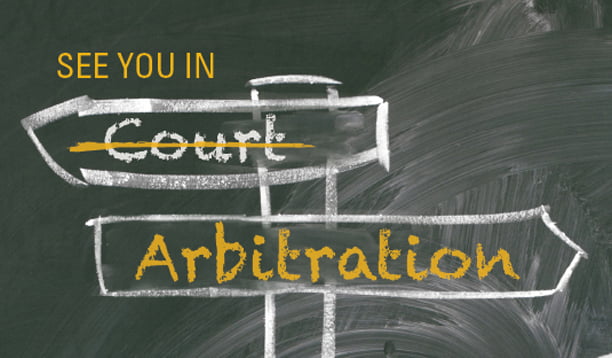

This post first appeared on the Securities Arbitration Alert blog. The blog’s editor-in-chief is George H. Friedman, Chairman of the Board of Directors for Arbitartion Resolution Services, Inc.
Michigan has adopted a new rule of attorney professional conduct requiring informed client consent to predispute arbitration agreements (“PDAA”) in retainer agreements.
The Supreme Court Order issued June 8 announces promulgation of a new Rule 1.19 of the Michigan Rules of Professional Conduct: “A lawyer shall not enter into an agreement for legal services with a client requiring that any dispute between the lawyer and the client be subject to arbitration unless the client provides informed consent in writing to the arbitration provision, which is based on being: (a) reasonably informed in writing regarding the scope and the advantages and disadvantages of the arbitration provision; or (b) independently represented in making the agreement.”
Guidance on Informed Consent
The Official Comment offers this guidance on language demonstrating client informed consent to PDAAs (ed: repeated essentially verbatim):
(1) By agreeing to arbitration, the client is: (a) waiving the right to a jury trial; (b) potentially waiving the right to take discovery to the same extent as is available in a case litigated in a court; (c) waiving or limiting the right to appeal the result of the arbitration proceeding to specific circumstances established by law; and (d) agreeing to be financially responsible for at least a share of the arbitrator’s compensation and the administrative fees associated with the arbitration;
(2) whether the agreement to arbitrate includes arbitration of legal malpractice claims against the lawyer;
(3) identification of the organization or person(s) that will administer the arbitration;
(4) if the client declines to agree to arbitration at the onset of the attorney-client relationship, there is no prohibition against the lawyer and the client agreeing to arbitrate the matter at a later date;
(5) arbitration may be conducted as a private proceeding, unlike litigation in a court;
(6) the parties can select an arbitrator who is experienced in the subject matter of the dispute;
(7) depending on the circumstances, arbitration can be more efficient, expeditious and inexpensive than litigation in a court; and
(8) the client’s ability to report unethical conduct by the lawyer is not restricted.
Vigorous Dissent
Justice Zahra dissidents, joined by Justice Vaviano:
“The rule … tips the scale against arbitration by placing procedural hurdles to entering these agreements. I have no doubt that the rule represents a well-intentioned effort to protect clients. But good intentions do not justify needless, ineffective, and potentially deleterious rules. I believe the present rule is all of these.”
The dissenters also believe the new rule is a strong candidate for Federal Arbitration Act preemption. Five other Justices voted in favor of the Rule, which was published for comments in December 2021.
(ed: *The new rule is effective September 1. **This reminds us of FINRA Rule 2268, which governs the content and placement of PDAAs. ***We’re not so sure about FAA preemption; SCOTUS tends to give deference to State oversight of attorney regulation.)






